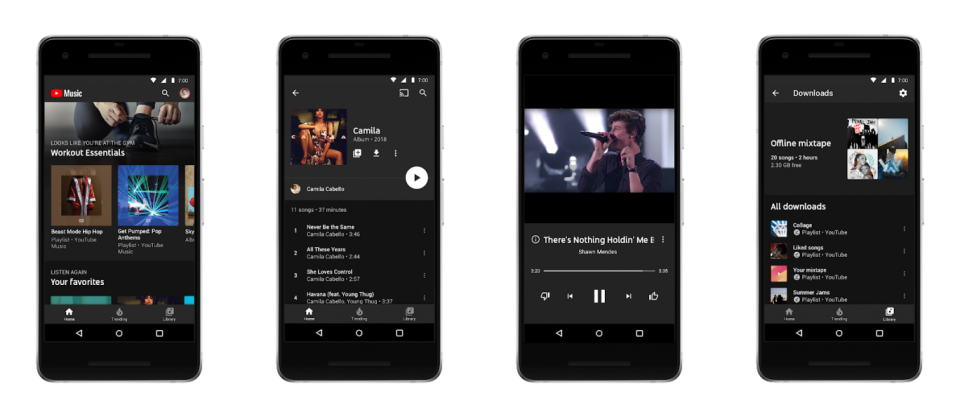What is YouTube Music? Spotify and Apple Music rival launches as Google revives streaming service
“Music isn’t just what we listen to, it’s who we are.” This is Google’s hypothesis, as laid out in marketing materials for YouTube Music – a revamped streaming service it hopes will rival Spotify and Apple Music. And who knows who people really are better than Google?
Through its blanket dominance in everything from email and search, to maps and calendars, Google knows its users’ location, habits, tastes and future plans. By accessing the vast amounts of data swept up by these digital services, Google wants to offer a new type of personalised music streaming service.
Combining this personal knowledge with the AI-powered Google Assistant, YouTube Music should in theory be able to offer listening suggestions suitable to whatever the situation – be it falling asleep or a morning commute.
While some may find Google’s insidious data reach creepy – especially given recent scandals – this type of personalised content offering may be the only way for the technology giant to muscle in on the market dominance of its rivals.
Having launched almost 10 years ago, Sweden-based Spotify has established itself as the number one paid music subscription service, with more than 75 million monthly subscribers. Despite only being less than three years old, Apple Music has managed to use its loyal following to attract an estimated 50 million subscribers.
Between the two of them, they represent more than half of the global market for music subscription services, with only Amazon Music offering any real competition.
All offer similar music libraries at similar price points, and Google's offering will be no different in this respect, so playing to its strength's will be key if it is to offer something truly worth switching for.
Elias Roman, a product manager at YouTube Music, said the new service will make the world of music "more personalised than ever" thanks to its use of data and artificial intelligence.
"YouTube Music’s personalised home screen dynamically adapts to provide recommendations based on people’s listening history, where they are and what they’re doing," Ms Roman explained in a blogpost.
"At the airport? We’ll recommend something relaxing before the flight. Entering the gym? We’ll suggest some beats to get the heart-rate going."

YouTube Music is not Google’s first foray into the streaming-music market, having previously launched Google Play Music in 2011. Despite its head start on Apple and Amazon, Google Play Music never saw the same level of adoption.
The launch of the original YouTube Music in 2015 hoped to capitalise on the 1.3 billion users of YouTube, many of who use it as a platform to stream music for free. The service only ever made it to five countries, however, and also failed to reach the mainstream.
The all-new YouTube Music is set to launch on 22 May in the US, Australia, New Zealand, Mexico and South Korea, before rolling out to 14 other locations, including the UK.
It will coincide with the rebranding of YouTube Red to YouTube Premium, as well as the phasing out of Google Music, as the technology giant aims to unify its video and music streaming services under one brand.

For those willing to let Google that bit further into their life, YouTube Music could offer a genuinely unique alternative to the already established services on offer.
As Youtube's Ms Roman explains: "No matter what kind of music you like, where you are, what you’re doing, or what mood you’re in, you can easily find the right playlist for that moment."

